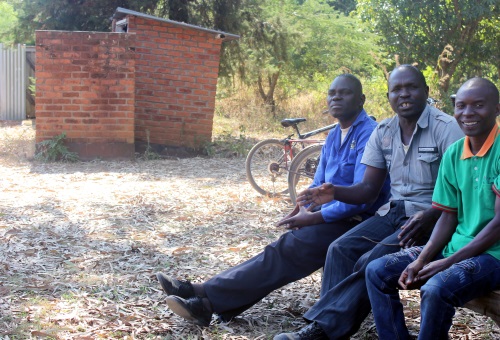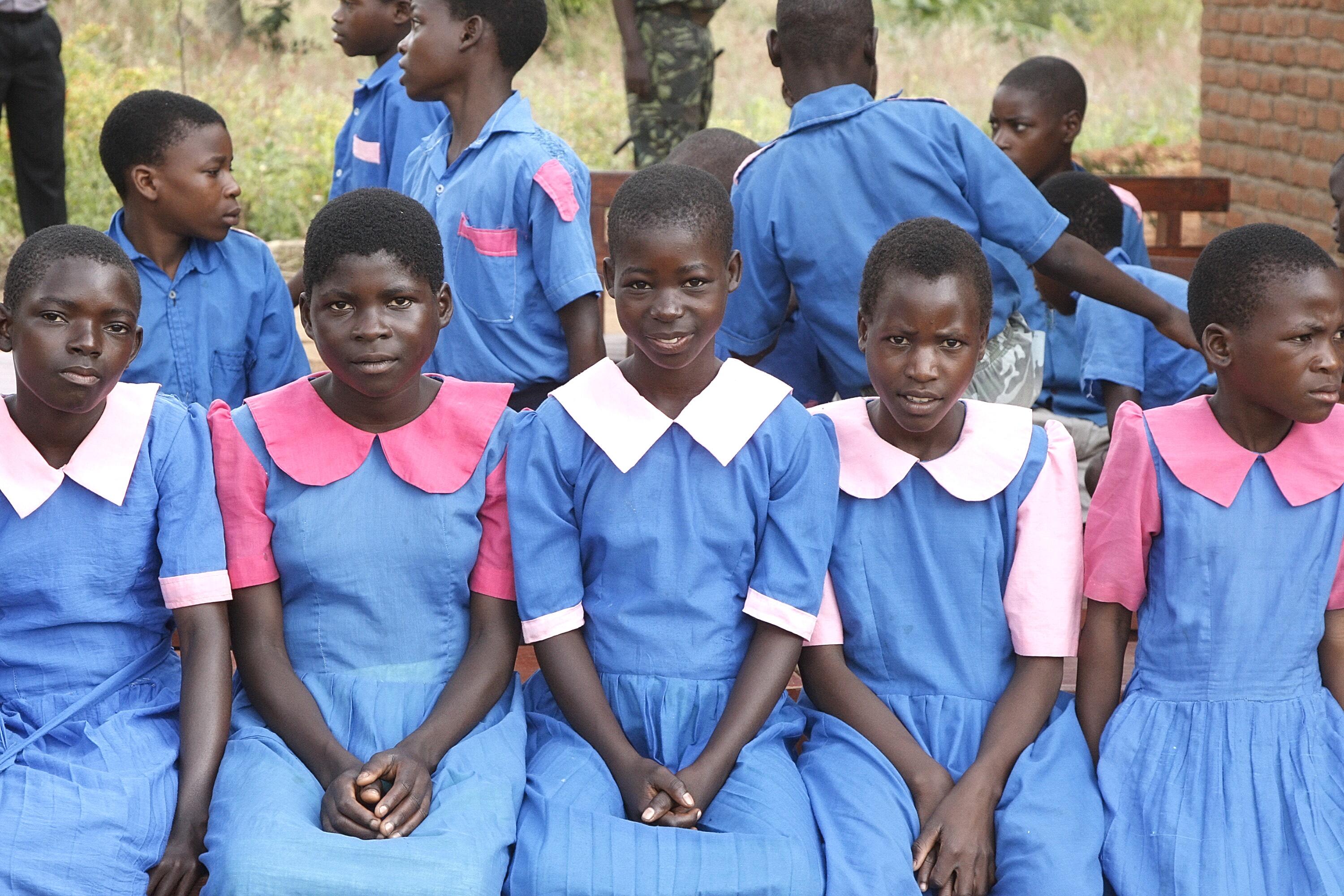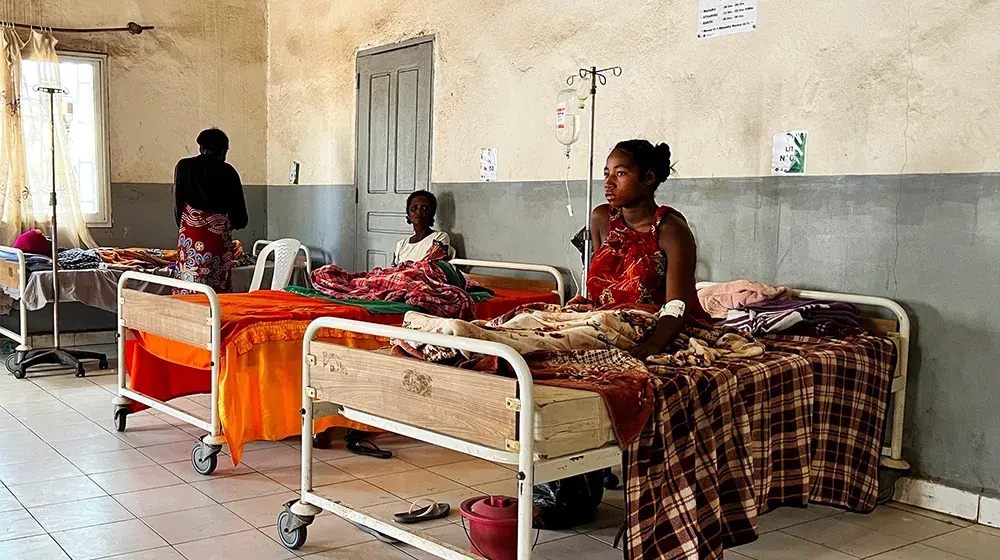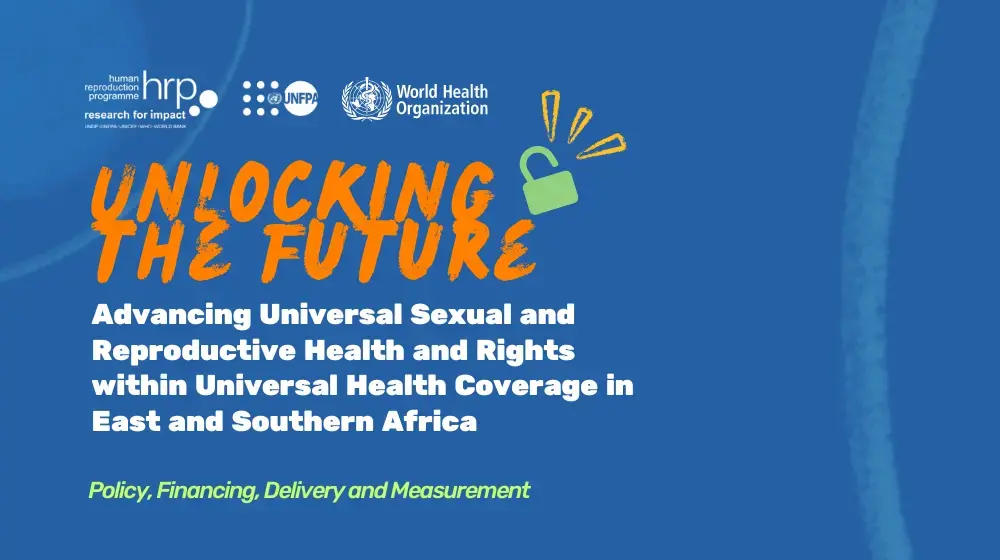KATULI, Mangochi District, Malawi – In the eyes of young males in Katuli village, the men who travel to South Africa to work and send money home to their families are role models they aspire to. But while some of these men are able to build houses and buy cars with their earnings, there’s a cost to the community for their financial success: the 'bonding' of girls.
When a man is working in South Africa, he may propose marriage to a girl or woman at home – either someone he already knows or has seen from afar, whom he wishes to marry one day when he returns for good. The process is known as ‘bonding’ (being promised in marriage).
Although considered culturally acceptable, the challenge that bonding presents is that if a girl accepts while she is still at school, she is expected to drop out and either live with her betrothed’s parents, or simply stay at home. She is obliged to wait for him to return, which could take as long as five or six years.
In Mangochi, this practice has increased the school dropout rate.

Frequently, when her betrothed returns home briefly to visit his family, the girl becomes pregnant and is left to take care of the child when he travels back to South Africa. Nor can she be sure that she is his only wife as, unbeknown to his family, he may have married a woman in South Africa. In return, bonded girls tend to be faithful to their partners out of fear of becoming pregnant with another’s child and risking their marriage.
Violating girls’ rights
But the practice of bonding and school dropout is a violation of the rights of girls, according to Mtelera Community Victims Support Unit (CVSU) in Katuli, which is challenging it on the basis that if a bonded girl stayed in school she could complete her education and marry later on. The CVSU was established as an initiative of the UN Joint Programme for Adolescent Girls (JPAG) programme in Mangochi to rescue girls from the bonds of marriage.
She will be more empowered with information if she completes her education and marries him later. – CVSU member
In Malawi, almost half of all girls are married by age 18, while 25 per cent of adolescent girls (aged 15-19 years) have a child (UN Foundation, 2012). Girls’ access to education is limited by social, economic, protective and health challenges. According to data, 58 per cent of girls dropped out of school. Of those who continued their schooling, 18 per cent became pregnant and 8 per cent married (NSO, 2012).
Less than 25 per cent of girls finish primary school, let alone secondary school.[1] The low rate is mainly attributed to harmful cultural practices and lack of age-appropriate reproductive health information and knowledge, self-efficacy and use of services. Making services available could reduce school drop-out by preventing pregnancy and reducing transmission of HIV and other STIs.
Keeping bonded girls in school
The CVSU works to keep girls in school after they have become prospective wives for local men working in South Africa. Recently, its members helped six girls return to school; they have now written their Standard 8 end-of-year exams.
The community has accepted our approach and it is becoming popular. – CVSU member
A CVSU member explained the rationale: “If the girl is in Standard 6 and the man who will marry her will return in five years, if she goes ahead with her schooling she can cover some distance and perhaps be in secondary school by the time he comes back. She will be more empowered with information if she completes her education and marries him later.
“The community has accepted our approach and it is becoming popular. We hope more parents will see the reason for this initiative. So far, we have had positive feedback and local leaders are behind us, so we are going forward.”
Mtelera CVSU was established in 2011 when the UN Joint Programme for Adolescent Girls (JPAG) was introduced in the community. Its work has seen many gender-based violence cases being addressed, including cases of men being arrested in connection with rape and physical assault of women and girls.
JPAG was launched in 2010 with start-up funds from the UN Foundation, and aims to empowers girls. It has been implemented in the two Traditional Authorities of Masache (Chikhwawa) and Katuli (Mangochi) in the southern region of Malawi. The project has been funded by the Royal Norwegian Embassy since 2011, with UNFPA as the administrative agent. Initially, the participating agencies included UNFPA, UNICEF, WHO and UNESCO.
JPAG empowers girls
As a result of the initiative more girls are participating in girls-only clubs and community development activities in the two TAs, and are taking leadership roles in these clubs. In Masache and Katuli, around 200 adolescent girls have been trained in skills development, and some have since established small businesses from which they are making a living.
School drop-out rates have declined from 93 per cent to 35 per cent. Fewer adolescents drop out due to difficulty paying school fees. School enrolment and retention has increased in both districts – about 74 per cent of the girls are now attending school compared to 53 per cent previously.
Literacy levels have improved to 74 per cent in Mangochi and 47 per cent in Chikhwawa, due to free basic education and an increasing number of married adolescents returning to school. There is increased knowledge of the importance of girls’ education among girls and in their communities in the programme areas.
The programme has also showed improved school performance. Among the beneficiaries there was a pass rate of 100 per cent for girls who sat the Junior Certificate of Education in the 2013-2014 academic year, compared to a pass rate of 67 per cent for MSCE.
By Henry Chimbali
[1] Education Management Statistics System: Education statistics, 2013 bulletin




